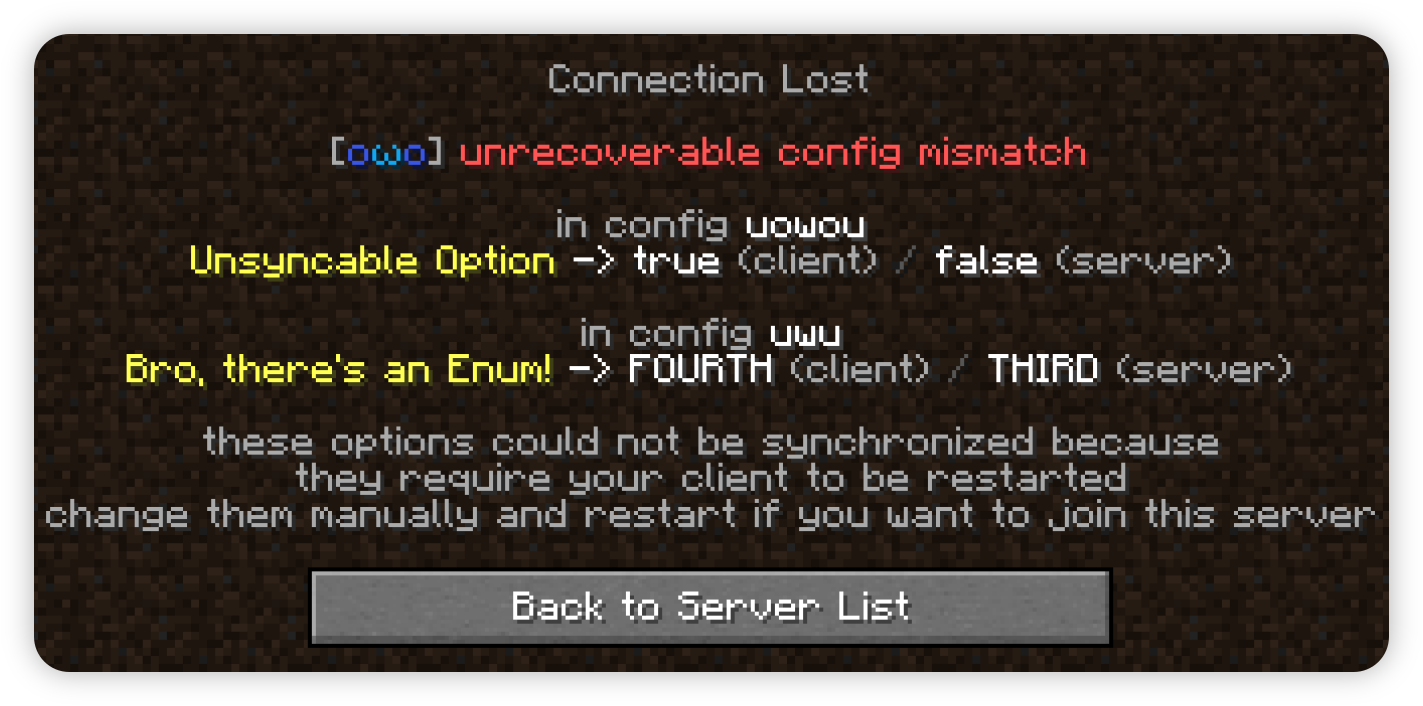Annotations
Most of owo-config's features are enabled via annotations. The ones which aren't covered in other articles already are outlined on this page.
@Expanded
This annotation applies to fields which are either a nested object or some sort of List<T> and makes them start expanded in the config screen.
@Hook
This annotation applies to any field and declares that a callback registrar should be generated. Refer to this handy example:
@Config(name = "my-config", wrapperName = "MyConfig")
public class MyConfigModel {
public int withoutHook = 0;
@Hook
public int withHook = 1;
}public class MyConfig extends ConfigWrapper<MyConfigModel> {
...
public int withoutHook() {...}
public void withoutHook(int value) {...}
public int withHook() {...}
public void withHook(int value) {...}
public subscribeToWithHook(Consumer<Integer> subscriber) {...}
}@ExcludeFromScreen
This annotation applies to any field and simply hides it from the config screen - this is useful if the option is either internal or has no support in the config screen and you want to suppress the warning.
@RestartRequired
This annotation applies to any field and declares that the option it represents only actually applies after a restart of the game. The config screen indicates this and the player is explicitly notified when they close the screen.
The annotation also has a secondary effect when combined with @Sync(Option.SyncMode.OVERRIDE_CLIENT). Because an option which only applies after restart cannot be dynamically overridden by the server, owo-config will not allow players to connect if their client's value does not match the server.
